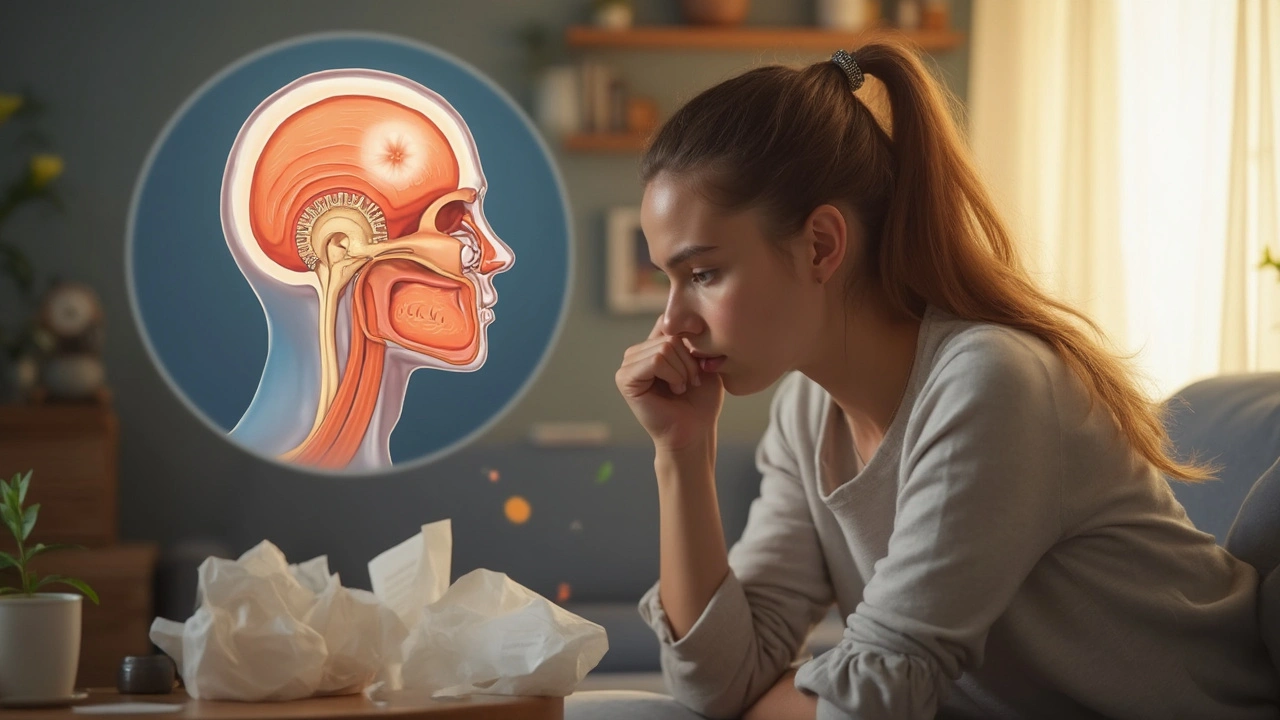If your face feels stuffed, you’ve probably dealt with a sinus infection before. It’s that annoying pressure behind the eyes, a thick yellow discharge, and a cough that just won’t quit. The good news? Most sinus infections are easy to manage at home, and you can tell when it’s time to call a doctor.
Sinus infections, or sinusitis, happen when the lining of your sinuses gets inflamed. The most common triggers are colds, allergies, or a dry indoor climate. When the tiny hairs (cilia) that clear mucus slow down, mucus builds up, creating a perfect home for bacteria or viruses.
Typical signs include:
If any of these stick around for more than 10 days, or if you feel worse after a short improvement, you might have a bacterial infection that needs extra care.
Most sinus infections clear up on their own with a few simple steps:
If symptoms linger past two weeks, you should see a doctor. They may prescribe a short course of antibiotics if a bacterial cause is likely, or a nasal steroid spray for chronic inflammation. People with weakened immune systems, diabetes, or recurring sinus issues should get checked sooner.
Beyond medicine, a few lifestyle tweaks help keep sinuses happy. Keep indoor humidity between 30‑50%, use an air purifier if you’re allergic to dust, and avoid smoking or second‑hand smoke. Elevating your head while sleeping also promotes drainage.
Bottom line: most sinus infections are manageable with home care, but don’t ignore fever, severe pain, or symptoms that keep coming back. Knowing the signs and acting fast can save you days of discomfort and keep your sinuses clear for the long run.

Are sinus infections really linked to Meniere’s disease? This article digs into what science knows, how symptoms overlap, and why chronic sinus problems might be making Meniere’s symptoms worse. Learn what triggers these flare-ups, the best ways to manage two tricky conditions at once, and some practical tips that make daily life easier. Understand the connection and take steps to feel steadier on your feet.